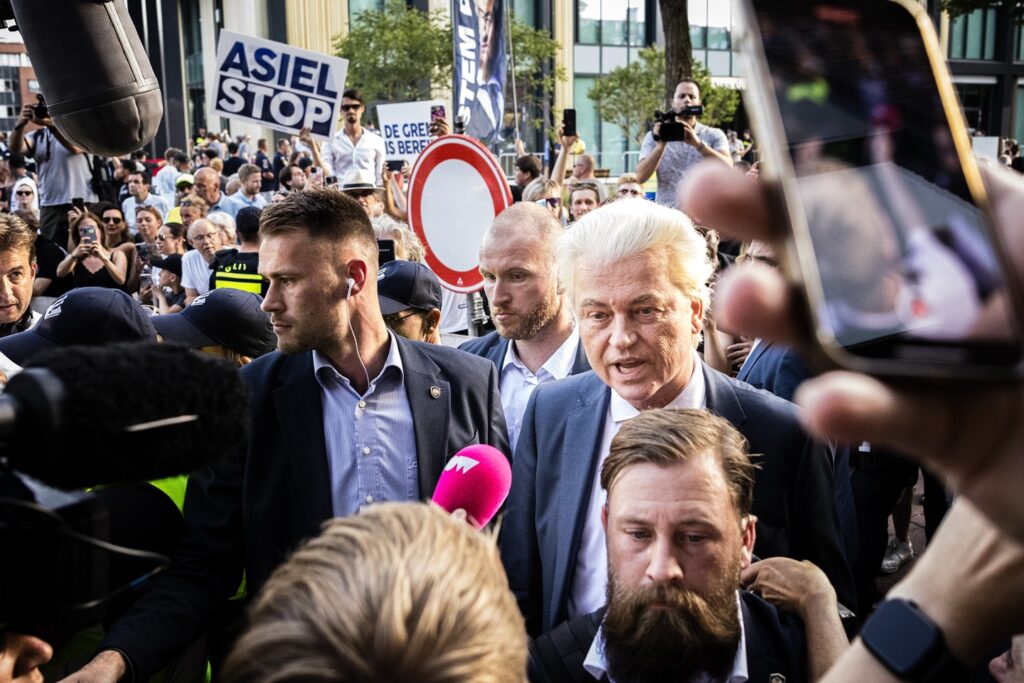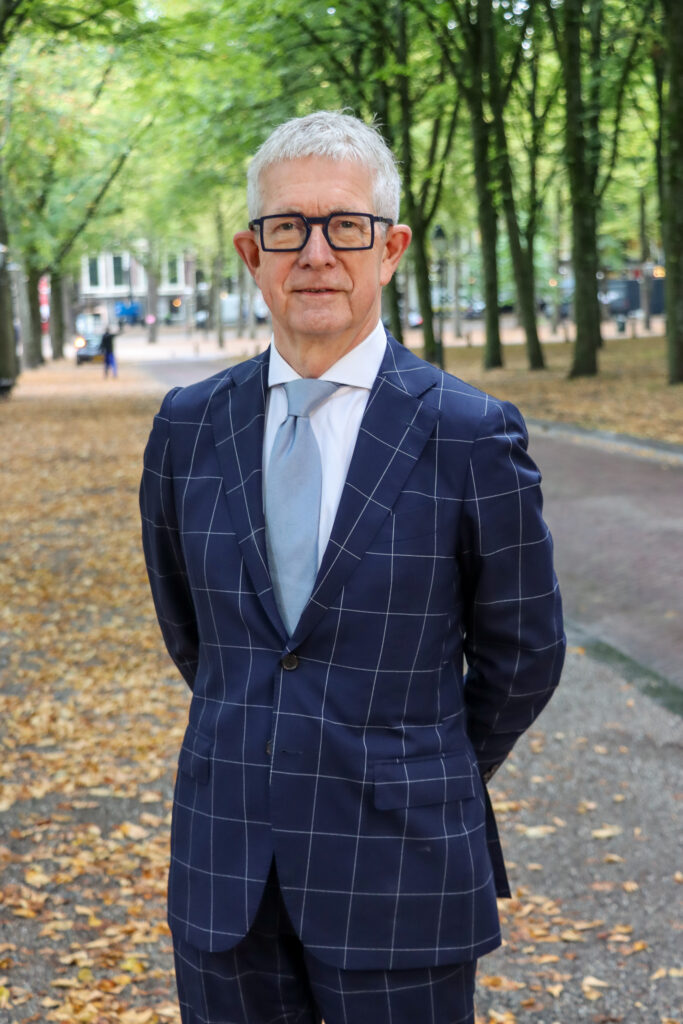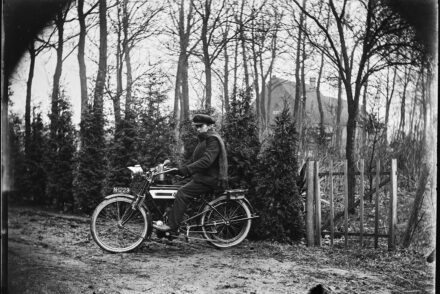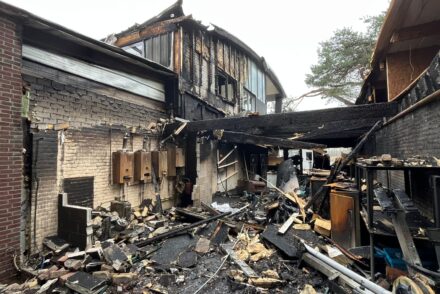Paul Frissen: ‘Twenty years after Fortuyn, migration still shapes the political debate’
‘Politics is about disagreements and the struggles we wage over them,’ says public administration expert Paul Frissen. But when populists present their truth as the only truth, he warns, the democratic balance is lost. ‘The VVD thought they could keep Wilders down by adopting his themes. That turned out to be a mistake.‘

In times of political polarization, conflicts and sharp opinions seem to increasingly dominate the news. Paul Frissen, emeritus professor of public administration at Tilburg University, has spent years exploring how the modern state functions and emphasizes that friction is an essential component of a healthy democracy. At the same time, he warns that populism can undermine that balance.
Univers speaks with Frissen about the rise of populism in the Netherlands, the enduring influence of Pim Fortuyn, and why migration remains a sensitive issue in politics.
Populism is a word that pops up everywhere. What do you think it means?
‘Populists turn against the elite, which they believe has culturally and morally betrayed the people. Populism is organized around a single leader who presents himself as the voice and embodiment of the people. Populists ignore mediation and representation: what the people want must be translated directly into policy.
‘They employ a powerful narrative of villain, victim, and hero, often apocalyptic, in which threats like migration or climate change take center stage. This gives rise to a messianic politics that, whether right-wing or left-wing, promises to save the people from destruction.’
Populist politicians deliberately seek confrontation, using harsh language and sharp contrasts. Is this a sign of a vibrant democracy, or should we be concerned?
‘In an abstract sense, we can indeed be happy about this, because politics is all about disagreements and the struggles we wage over them. That friction is an essential part of democracy: it shows that people are engaged and stand for something.
‘At the same time, therein also lies a danger. The goal of the democratic constitutional state is to keep that struggle peaceful, within rules, rituals, and institutions that prevent political disagreements from degenerating into hostility.
‘When populism pushes those boundaries—by presenting a majority position as the only truth and scapegoating minorities—that peaceful equilibrium comes under pressure.
‘So, we shouldn’t necessarily be happy with the tone and strategy of populism, but we should realize that conflict and tension are inherent to politics. The challenge is to conduct that struggle in such a way that the democratic constitutional state remains neutral: owned by no one, without political affiliation. As soon as one movement, left or right, claims or undermines that neutrality, democracy loses its open character.’
Pim Fortuyn is often cited as a turning point in Dutch politics. How did he change the political landscape?
‘Before Fortuyn became a politician, he primarily gave lectures. He crafted a narrative that resonated with the upper middle class and entrepreneurs, who saw him as a visionary and someone who had come to save the Netherlands. At the same time, he was a striking personality: a kind of modern-day Oscar Wilde, who presented himself as a work of art. His extroverted homosexuality, his dandyish appearance with suits, puppies, a butler, and an Italian villa, made him unique in politics.
‘Initially, migration wasn’t central to his agenda, but later he linked criticism of the Purple cabinet (Labour Party, CDA, and D66, ed.) with societal discontent about migration. This was partly motivated by his own fear of conservative norms that threatened his sexual orientation. This combination of personal style, political message, and societal discontent found definitive electoral expression.
‘Fortuyn’s legacy is visible in the way Geert Wilders further mobilizes these themes: as a result, political relations in the Netherlands have definitively changed and normalized. We are still struggling with the effects of that shift.’

Since Fortuyn, migration has been consistently high on the political agenda. Why does migration in particular evoke so much emotion among citizens and politicians?
‘In the Netherlands, migration has long been seen as something to be proud of. We saw ourselves as a chic and tolerant country, open to newcomers. But at the same time, this openness also served economic interests: employers profited from cheap labor.
‘In some neighborhoods, migration led to major changes in the population composition, with feelings of alienation on both sides – among both native residents and migrants – due to clashing cultures.
‘Yet, we never truly developed a migration policy, and politicians from both the left and right political spectrums have failed to address it. Populists have managed to mobilize this discontent by narrowing migration down to the issue of asylum.
‘This creates a vacuum in which populism can flourish. The VVD, for example, thought they could keep Wilders down by adopting his themes, but that proved to be a mistake: when voters can choose between the original and the copy, they choose the original.’
Do politicians sometimes use migration as a lightning rod for other problems, such as the housing shortage?
‘I wouldn’t immediately say yes to that. It’s more nuanced, because in practice, these themes overlap. There is indeed a connection in the real-life experiences of citizens. Years of failed government policy have created a major housing shortage. People are endlessly on waiting lists and can’t find suitable housing.
‘Populist politicians know how to cleverly exploit that frustration. They link such concrete citizen experiences to their own political agenda. If you want migration to become a priority, it’s smart to connect it to themes like the priority scheme for refugees. Then the link to asylum is quickly made.
‘Strategically, that’s smart politics, but it can have a negative side. It doesn’t help to show figures on how many refugees actually receive housing. Such factual information does little to change the emotional picture people have already formed.’







